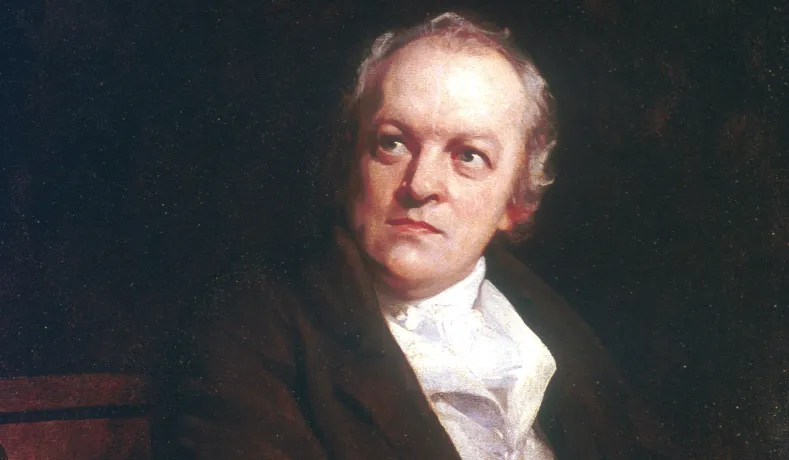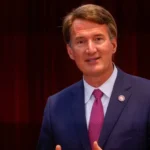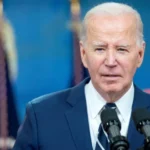
Published April 24, 2023
With gloomy education news all around, it’s time to celebrate and defend a truly encouraging development. The long-abandoned classroom practice of memorizing and reciting poetry is about to return. Both Georgia and Arkansas have included poetry-recitation requirements in their proposed new English Language Arts standards. Should those standards be approved in their current form, American education will have taken a giant leap forward. With a bit of luck, the long-lost practice of school-time poetry recitation will spread from Georgia and Arkansas to other states.
No doubt, some progressives will dismiss this development as a return of the worst that the 19th century has to offer. That is their mistake. The 19th century wins this one, hands down. Standing athwart history yelling “Throw it into reverse!” is exactly what is needed here. A recitation revival, however, will not, and should not, mean an unalloyed return to the past. Ultimately, a revival will only have staying power if it yields something new and suited to our day — a tall order, as we’ll see.
It is poetry’s misfortune to have been caught up in the long dispute between progressive and conservative educators over the place of memorization in our schools. Instead of being the perfect specimen of our education quarrels, poetry is more like the oddball case that never quite fit. Consider the usual progressive objections to poetry recitation, here offered by a teacher from the U.K.: “I think that it’s more important to be able to read a poem, deconstruct it and analyze it for meaning, and engage with your own feelings about the poem. When we read prose, we don’t memorize it, do we?”
But poetry isn’t prose. Something intrinsic to poetry — its play of language and rhythm, sound and structure, and the emotions aroused thereby — demands to be read aloud. A challenging poem must be studied, of course, yet that is preparation for recital. Listening to a poem in the mind’s ear will do in a pinch, but silent reading is always second-best. Students who recite poetry regularly discover the difference the spoken word makes. A good poem makes you want to say it out loud.
Although prose is not poetry, biblical prose is often memorized and recited, an exception that proves the rule. The Bible’s sacred and quasi-poetic prose makes it a cousin to poetry proper. Oratory is, too, when it reaches literary heights (“Four score and seven . . . ” “I have a dream . . . ”). Music, rhythmic and performed, is another cousin of poetry. Songs are easily recalled across decades. So are memorized poems.
Recitation of memorized history, literature, or science lessons was required drill in 19th-century schools — colleges, too. A poetry-recitation revival in no way takes us back to all that. For the most part, history textbooks should be studied and interrogated, not committed to memory (although having key dates and events at your command is essential). Poetry, however, is meant to be recited. Poetry recitation’s death was collateral damage in a memorization war that poetry ought never to have been part of.
The attack on rote memorization wasn’t the only complaint lodged against in-class poetry recitation. Performing poems in front of peers meant anxious embarrassment for many. Even most adults have a fear of public speaking. Through recitation exercises, students gained confidence from experience.
A 1995 survey that drew responses from 500 readers of the New York Times Book Review (analyzed here) gives a sense of how in-class poetry recitations, still common between 1917 and 1950, were viewed retrospectively by adults. Overwhelmingly, respondents expressed distress over the abandonment of recitation by schools, especially lamenting the loss of common reference points. One respondent recalled being a fourth-grader trying to memorize Joaquin Miller’s “Columbus.” While fumbling through the opening lines (“Behind him lay the gray Azores”), his father resumed and continued to the poem’s end — with feeling. “That glimpse of continuity and linkage between my father and me has stayed with me these fifty-six years.” A woman recited Kipling to her father, who had memorized the poet’s works as a child, to help pull him out of disorientation induced by cancer drugs. Those words lay deep in his mind, providing stability and warmth when he heard them back from her.
Respondents came to think of the poems they had memorized as treasured possessions, called forth for comfort and counsel through life’s vicissitudes. At times, memorized poems seemed to become almost physical parts of the self. A respondent explained by quoting a line from one of the most widely memorized poems, Wordsworth’s “I Wandered Lonely as a Cloud” (better known as “Daffodils”), “They flash upon that inward eye / Which is the bliss of solitude.”
In short, the case for a recitation revival is strong, and here’s the kicker. It’s already happened — in the U.K., that is. In 2012, Michael Gove, Britain’s education secretary, restored poetry recitation to the primary-school national curriculum. (Yes, Britain has a national curriculum.) The recitation requirement had been dropped in 1944, at just about the time the practice faded here. Although Gove’s move prompted wailing and moaning from progressive educators, it has worked out and remains in place. (See this Cambridge University study, which affirms the many positive effects of memorized poetry.)
At the same time that the formal recitation requirement was added to the U.K.’s primary-school curriculum, Britain’s Department of Education established Poetry by Heart, a recitation competition for secondary-school students that’s been going strong for a decade. There was doubt at first about whether students used to looking up on their phones whatever they needed would take to memorizing poetry. In the event, this national recitation competition has been a great success. The finals are now held at Shakespeare’s Globe. While Poetry by Heart remains an extracurricular activity, secondary-school teachers are increasingly incorporating it into their regular lesson plans.
Britain may have beat us to the punch on the revival of recitation in the curriculum, but America was first out of the box with a national poetry-recitation competition. In 2005, Dana Gioia, chairman of the National Endowment for the Arts, established Poetry Out Loud, a competition that now involves hundreds of thousands of students across America. (You can see sample videos here.)
Now, however, we come to stickier issues. First, does poetry recitation really strike some kind of blow for conservatism, or does the teaching of poetry stand beyond politics? I’d say there is an element of conservatism in the recitation revival, in the obvious sense that it restores a worthy educational practice that never should have been abandoned in the first place. Depending crucially on the content of the requirement, poetry recitation may also restore an appreciation for classic poetry. But if the classics return, should we think of them as “conservative,” or are they above all that?
Consider William Blake. Blake is a classic poet whose work it would be foolish to dismiss on grounds that he’s a dead white, European male. To the degree that Blake is an unjustly neglected canonical poet, attention to his work is “conservative.” Yet Blake was hardly a social or political traditionalist. It’s silly to pigeon-hole this radical revolutionary as a political conservative simply because he’s been unjustly lumped with other canonical writers on spurious grounds of identity. Classic poetry has no single, simple political quality.
Yet poetry can be political. Poetry Out Loud entrants choose poems for recitation from collections supplied by the contest organizers. Among those poems are classics, such as Shakespeare’s “Sonnet 130,” as well as modern “multicultural” selections, such as “Bilingual/Bilingue” by Rhina P. Espaillat (a poem I enjoyed). The Poetry Out Loud website now also includes a collection called “Poems of Protest, Resistance, and Empowerment,” with self-consciously political selections (all, of course, on the left). Back when Dana Gioia founded Poetry Out Loud, classic selections dominated, and overtly political work was scarce. Beginning with the Obama administration, however, the tenor of the offerings began to change. The content of a recitation revival, then, isn’t obviously or necessarily political. Yet it can be. Much rests on the purposes of the people in charge.
As of now, the proposed recitation requirements in Georgia and Arkansas are not closely tied to the required poetry readings in the standards themselves, most of which are literary classics. The wording of the recitation requirements certainly suggests a preference for classical material. Technically, however, poems of low literary worth but high political content could be selected for recitation. If I were on the committees crafting state recitation requirements, I would tie them more closely and clearly to the required poetry curriculum.
That said, I would not necessarily restrict students to recitations of classical poetry, however defined. The U.K.’s Poetry by Heart program deals with changes in our poetic tradition by requiring contestants to recite one poem from before 1914, and one from after that date. That is a clever strategy.
Consider “Casabianca” (1826), by Felicia Hemans (performed here for Poetry by Heart). “Casabianca” was probably the most widely recited British poem of its era. Now, compare “Casabianca” with “Dulce et Decorum Est” (1917), by Wilfred Owen (performed here for Poetry by Heart). The two poems are almost literal opposites, right down to the imagery, one a celebration of honor, courage, and duty, the other decidedly not. They make a stunning pair. I wouldn’t want to see either poem left off the lists. Each encapsulates an indispensable moment in British history: the heroic struggle against Napoleon and the battlefield horrors of World War I. The two poems together address the question of war. Each almost repels the other, yet somehow the two poems mesh.
The poetry recited in American classrooms up through the 1940s remained for the most part Victorian. Each poem conveyed a moral, for which the students were taught to search. Those moral lessons grew out of Protestant devotion and American patriotism. Even through the first half of the 20th century, contemporary poetry was avoided by schools for being amoral or cruel, and thus inappropriate for children. Nineteenth-century poems, such as Wordsworth’s “Daffodils,” remained perfectly suited to schools. (Watch this charming performance of “Daffodils” by a child, which a distinguished actor can hardly best.)
The return of recitation to schools, and the inevitable appearance of contemporary poetry in those performances, generates real dilemmas. Consider the winning performance in the national Poetry Out Loud competition in 2018 (see 1:38:20–1:42:20), a rendition of “I Go Back to May 1937” (1987), by Sharon Olds. It is an extraordinarily powerful poem — just the sort of thing adults of an earlier era would have wanted to protect a child from. I would not call the poem inappropriate for an advanced high-school student in our coarser and sadder era. Olds’s poem, however, at least raises the issue of the proper subject matter for a revived practice of in-school poetry recitation. Are some poems not quite right for younger students?
All things considered, the return of poetry recitation to our schools is an extraordinary and most welcome development. Governor Brian Kemp of Georgia and Governor Sarah Huckabee-Sanders of Arkansas deserve our thanks and praise for their proposals. I hope both governors see it through despite any pushback. (Remember, it worked for Michael Gove.)
I’ve focused here on the big news: the return of recitation. It should be noted, however, that both Georgia and Arkansas are bringing back rich literary-content requirements, doing their students a great favor thereby, and breaking with the failed Common Core in the process. Mark Bauerlein, who served under Dana Gioia at the NEA, has been advising both states on these issues. (Here’s Bauerlein on the return of recitation and on the great works added to Georgia’s literature standards.)
Even if we finally decide to give it a try, however, it won’t be easy to reconnect to the West’s great tradition of poetry, while creating a living continuation of that line. Binding parents and children through Columbus or Kipling is more than merely difficult nowadays. It is, in essence, forbidden. Sharon Olds writes powerful poetry, yet the path from “I Wandered Lonely as a Cloud” to “I Go Back to May 1937” is something less than smooth.
Fortunately, for encouragement we have Dana Gioia, the former NEA chairman who founded Poetry Out Loud. Gioia is himself a celebrated poet. His latest collection, “Meet Me at the Lighthouse,” is proof that the tradition lives on in modern form. One of the pieces in that volume, “Three Drunk Poets,” is about our long line of poetry. And Gioia’s literary criticism helps recover figures such as Longfellow, America’s first poet of note (and arguably our first national celebrity), once vastly popular yet now terribly distant and diminished.
Well, Longfellow and his friends are back. And for the first time in a long time, when “my children” listen, they shall hear.
Stanley Kurtz is a senior fellow at the Ethics and Public Policy Center.
Stanley Kurtz is a Senior Fellow at the Ethics and Public Policy Center. Beyond his work with Education and American Ideals, Mr. Kurtz is a key contributor to American public debates on a wide range of issues from K–12 and higher education reform, to the challenges of democratization abroad, to urban-suburban policies, to the shaping of the American left’s agenda. Mr. Kurtz has written on these and other issues for various journals, particularly National Review Online (where he is a contributing editor).












